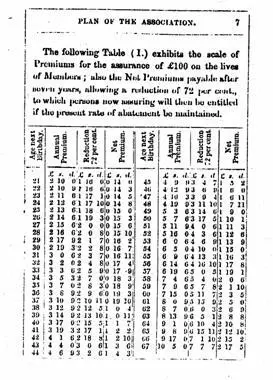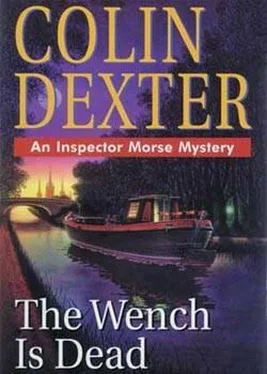Colin Dexter - The Wench Is Dead
Здесь есть возможность читать онлайн «Colin Dexter - The Wench Is Dead» весь текст электронной книги совершенно бесплатно (целиком полную версию без сокращений). В некоторых случаях можно слушать аудио, скачать через торрент в формате fb2 и присутствует краткое содержание. Жанр: Детектив, на английском языке. Описание произведения, (предисловие) а так же отзывы посетителей доступны на портале библиотеки ЛибКат.
- Название:The Wench Is Dead
- Автор:
- Жанр:
- Год:неизвестен
- ISBN:нет данных
- Рейтинг книги:4 / 5. Голосов: 1
-
Избранное:Добавить в избранное
- Отзывы:
-
Ваша оценка:
- 80
- 1
- 2
- 3
- 4
- 5
The Wench Is Dead: краткое содержание, описание и аннотация
Предлагаем к чтению аннотацию, описание, краткое содержание или предисловие (зависит от того, что написал сам автор книги «The Wench Is Dead»). Если вы не нашли необходимую информацию о книге — напишите в комментариях, мы постараемся отыскать её.
The Wench Is Dead — читать онлайн бесплатно полную книгу (весь текст) целиком
Ниже представлен текст книги, разбитый по страницам. Система сохранения места последней прочитанной страницы, позволяет с удобством читать онлайн бесплатно книгу «The Wench Is Dead», без необходимости каждый раз заново искать на чём Вы остановились. Поставьте закладку, и сможете в любой момент перейти на страницу, на которой закончили чтение.
Интервал:
Закладка:
After Lewis had gone, Morse made a phone call.
'What was the average height of women in the nineteenth century?'
'Which end of the nineteenth century, Morse?'
'Let's say the middle.'
'Interesting question!'
'Well?'
'It varied, I suppose.'
'Come on!'
'Poor food, lack of protein – all that sort of stuff. Not very big, most of 'em. Certainly no bigger than the Ripper's victims in the 1880s: four foot nine, four foot ten, four foot eleven – that sort of height: well, that's about what those dear ladies were. Except one. Stride, wasn't her name? Yes, Liz Stride. They called her "Long Liz" – so much taller than all the other women in the work-houses. You follow that, Morse?'
'How tall was she – "Long Liz"?'
'Dunno.'
'Can you find out?'
'What, now?'
'And ring me back?'
'Bloody hell!'
Thanks.'
Morse was three minutes into the love duet from Act One of Die Walkiire when the phone rang.
'Morse? Five foot three.'
Morse whistled.
'Pardon?'
'Thanks, Max! By the way, are you at the lab all day tomorrow? Something I want to bring to show you.'
So the 'petite' little figure had measured three quarters of an inch more than 'Long Liz' Stride! And her shoes as Lewis had ascertained, were about size 5! Well, well, well! Virtually every fact now being unearthed (though that was probably not le mot juste) was bolstering Morse's bold hypothesis. But, infuriatingly, there was, as it seemed, no chance whatever of establishing the truth. Not, at any rate, the truth regarding Joanna Franks.
Chapter Thirty-four
Marauding louts have shot the moping owl:
The tower is silent 'neath the wat'ry moon;
But Lady Porter, lately on the prowl
Will sell the place for pennies very soon
(E. O. Parrot, The Spectator)
The communication from the Insurance Company had been a third and final demand for his previous month's premium; and the first thing Morse did the following morning was to write out a cheque, with a brief letter of apology. He understood very little about money, but a dozen or so years previously he had deemed it provident (as it transpired, Prudential) to pay a monthly premium of £55 against a lump sum of £12,000, with profits, at sixty -an age looming ever closer. He had never given a thought about what would happen if he pre-deceased his policy. No worry for him: for the present he had no financial worries, no dependants, a good salary, and a mortgage that would finish in two years' time. He knew it, yes! – compared with the vast majority of mankind he was extremely fortunate. Still, he ought perhaps to think of making a will…
Coincidentally, he had been talking to Lewis about insurances the day before and (he admitted it to himself) largely making it all up as he went along. But it was far from improbable, wasn't it – what he'd guessed? Those insurance fiddles? He looked out the first material that Christine had brought in to him at the JR2, and once again studied the facts and figures of the Nottinghamshire and Midlands Friendly Society for 1859:

Joanna had been born in 1821, so she was thirty-eight in 1859. If she'd taken out a policy a year, two years earlier, that would be – age next birthday thirty-six – an annual premium of £3. 8 s , 9 d. Under £7, say, for a return of £100. Not bad at all. And if Donavan had already pocketed a similar packet…
Morse left his flat in mid-morning (the first excursion since his return) and posted his single letter. He met no one he knew as he turned right along the Banbury Road, and then right again into Squitchey Lane; where, taking the second turning on his left, just past the evangelical chapel (now converted into a little group of residences) he walked down Middle Way. It was a dark, dankish morning, and a scattering of rooks (mistaking, perhaps, the hour) squawked away in the trees to his right. Past Bishop Kirk Middle School he went on, and straight along past the attractive terraced houses on either side with their mullioned bay-windows – and, on his left, there it was: Dudley Court, a block of flats built in cinnamon-coloured brick on the site of the old Summertown Parish Cemetery. A rectangle of lawn, some fifty by twenty-five yards was set out behind a low containing wall, only about eighteen inches high, over which Morse stepped into the grassy plot planted with yew-trees and red-berried bushes. Immediately to his left, the area was bounded by the rear premises of a Social Club; and along this wall, beneath the straggly branches of winter jasmine, and covered with damp beech-leaves, he could make out the stumps of four or five old headstones, broken off at their roots like so many jagged teeth just protruding from their gums. Clearly, any deeper excavation to remove these stones in their entirety had been thwarted by the proximity of the wall; but all the rest had been removed, perhaps several years ago now – and duly recorded no doubt in some dusty box of papers on the shelves of the local Diocesan Offices. Well, at least Morse could face one simple fact: no burial evidence would be forthcoming from these fair lawns. None! Yet it would have been good to know where the stone had marked (as the Colonel had called it) the 'supra-corporal' site of Joanna Franks.
Or whoever.
He walked past Dudley Court itself where a Christmas tree, bedecked with red, green, and yellow bulbs, was already switched on; past the North Oxford Conservative Association premises, in which he had never (and would never) set foot; past the Spiritualist Church, in which he had never (as yet) set foot; past the low-roofed Women's Institute HQ, in which he had once spoken about the virtues of the Neighbourhood Watch Scheme; and finally, turning left, he came into South Parade, just opposite the Post Office – into which he ventured once a year and that to pay the Lancia's road-tax. But as he walked by the old familiar land-marks, his mind was far away, and the decision firmly taken. If he was to be cheated of finding one of his suspects, he would go and look for the other! He needed a break. He would have a break.
There was a travel agency immediately across the street, and the girl who sat at the first desk to the right smiled brightly.
'Can I help you, sir?'
'Yes! I'd like' (Morse sat himself down) I'd like to book a holiday, with a car, in Ireland – the Republic, that is.'
Later that day, Morse called at the William Dunn School of Pathology in South Parks Road.
'Have a look at these for me, will you?'
Refraining from all cynical comment, Max looked dubiously across at Morse over his half-lenses.
'Max! All I want to know is-'
'- whether they come from M &S or Littlewoods?'
'The tear, Max – the tear.'
'Tear? What tear?' Max picked up the knickers with some distaste and examined them (as it seemed to Morse) in cursory fashion. 'No tear here, Morse. Not the faintest sign of any irregular distension of the fibre tissue – calico, by the way, isn't it?'
'I think so.'
'Well, we don't need a microscope to tell us it's a cut: neat, clean, straight-forward cut, all right?'
'With a knife?'
'What the hell else do you cut things with?'
'Cheese-slicer? Pair of-?'
'What a wonderful thing, Morse, is the human imagination!'
It was a wonderful thing, too, that Morse had received such an unequivocal answer to one of his questions; the very first such answer, in fact, in their long and reasonably amicable acquaintanceship.
Читать дальшеИнтервал:
Закладка:
Похожие книги на «The Wench Is Dead»
Представляем Вашему вниманию похожие книги на «The Wench Is Dead» списком для выбора. Мы отобрали схожую по названию и смыслу литературу в надежде предоставить читателям больше вариантов отыскать новые, интересные, ещё непрочитанные произведения.
Обсуждение, отзывы о книге «The Wench Is Dead» и просто собственные мнения читателей. Оставьте ваши комментарии, напишите, что Вы думаете о произведении, его смысле или главных героях. Укажите что конкретно понравилось, а что нет, и почему Вы так считаете.












